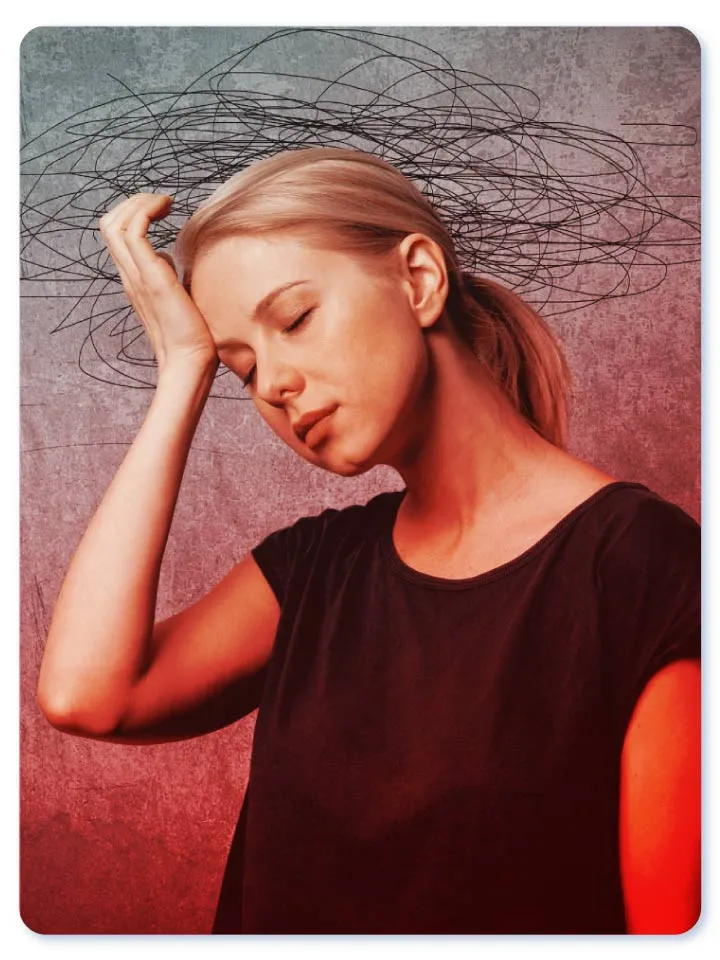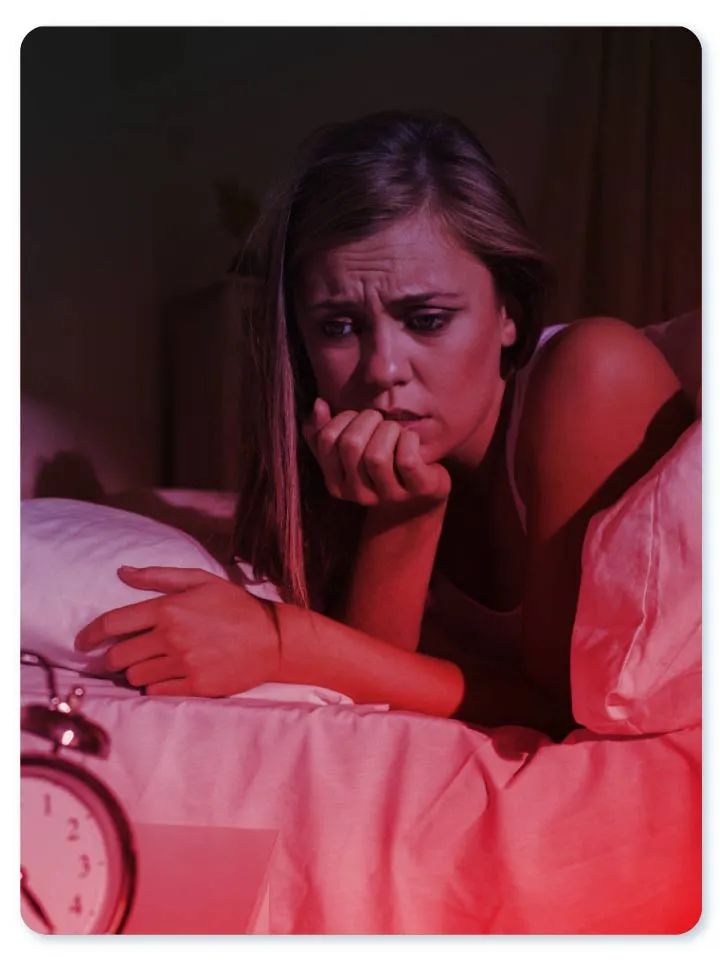Stress & Anxiety
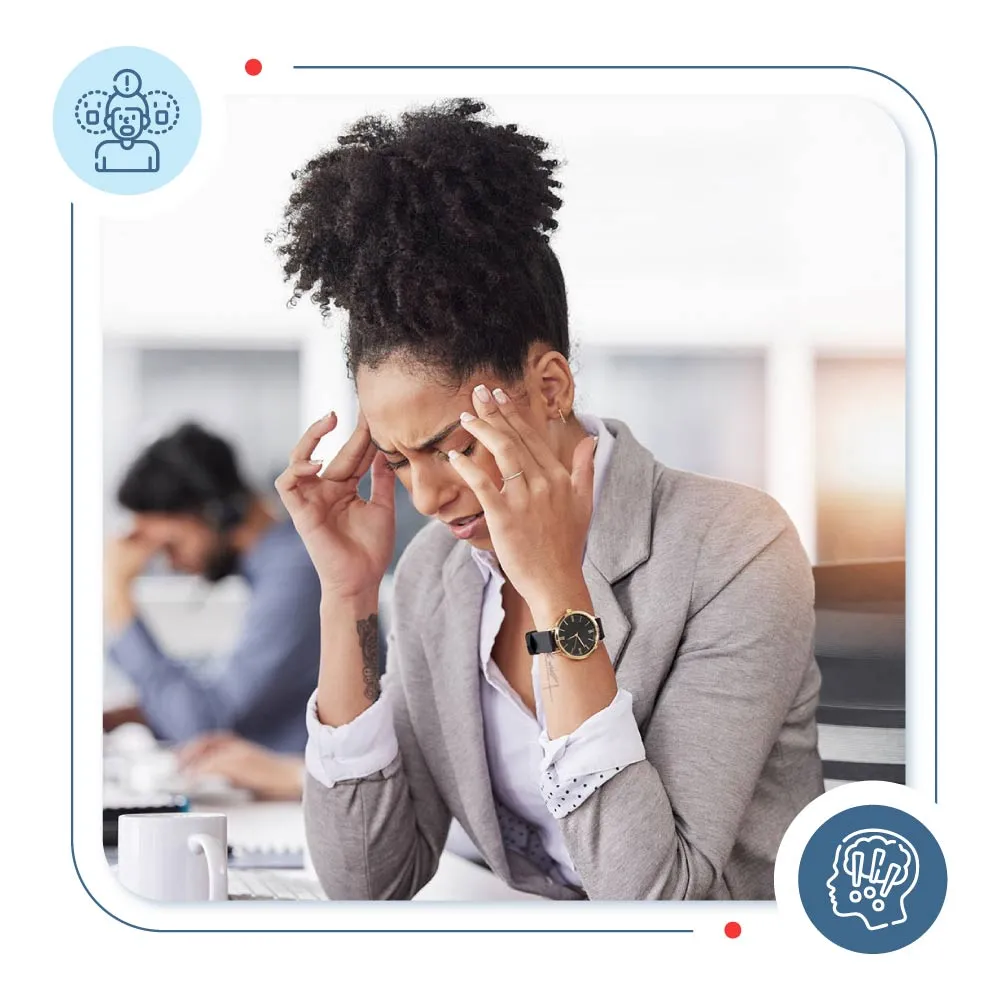
Stress & Anxiety
Stress is a natural human response to life’s inevitable changes and challenges. It involves a complex interplay of physical, emotional, and behavioral reactions as the body and mind adapt to new circumstances. While stress is a common and unavoidable part of the human experience, effective management techniques can significantly improve how we navigate these challenges.
Anxiety is a type of mental health issue that can cause dread, fear, and nervousness. Anxiety is an emotional state that puts you under constant mental strain.
Anxiety is one of the most common mental health issues faced worldwide. The World Health Organization reports anxiety disorders’ prevalence as 4% across the globe.
Mid Cities Psychiatry provides you with sympathetic and comprehensive care for stress and anxiety disorders, helping you regain balance and confidence.

Symptoms of Stress
Persistent stress overactivates your autonomic nervous system, which controls breathing, heart rate, and vision changes. The autonomic nervous system helps you prepare for a “fight-or-flight” response to cope with stressful conditions. Stress can negatively impact your behavioral and emotional conditions.
Stress or chronic stress can make you go through various physical symptoms, such as:
- Chest discomfort or a racing heartbeat.
- Persistent aches and pains.
- A weak immune system leads to illnesses.
- Digestion issues or stomach pain.
- Dizziness, headaches, or trembling.
- Continuous tiredness or difficulty sleeping.
- High blood pressure.
- Reduced interest in sex.
- Muscle stiffness or clenching your jaw.
The emotional and psychological effects that stress can cause include:
- Suffering from sadness or depression.
- Mood swings or trouble while focusing.
- Feeling overwhelmed due to stressors.
Stress can make you adopt some unhealthy habits to cope with long-term stressors:
- Gambling or excessive shopping.
- Consuming excessive time online.
- Drinking plenty of alcohol.
- Smoking or using drugs.
- Overeating or struggling with eating disorders.
On top of these symptoms, stress can also impact your skin. You may experience raised, pink bumps, rashes, or hives. Stress typically activates such rashes, which can itch and burn. Being a woman makes you more prone to these stress-related skin rashes. They normally occur in women between the ages of 20 and 40.
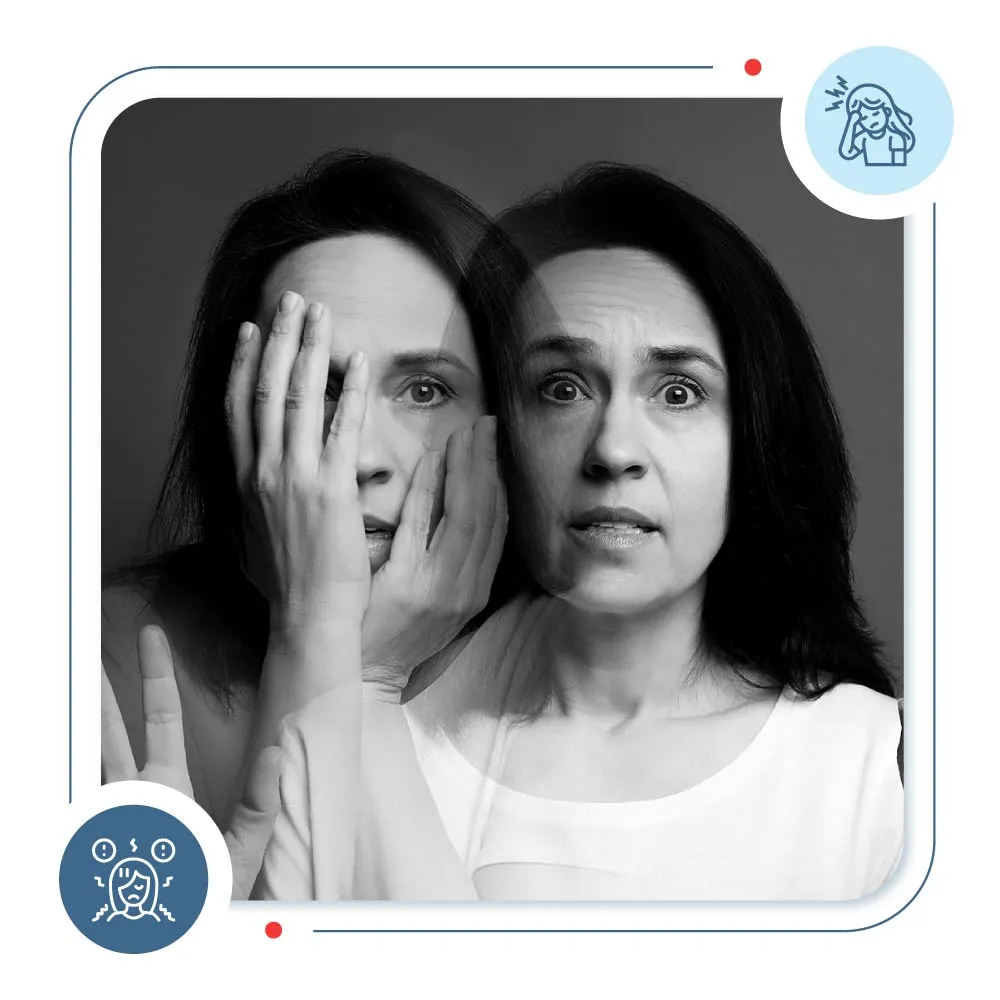

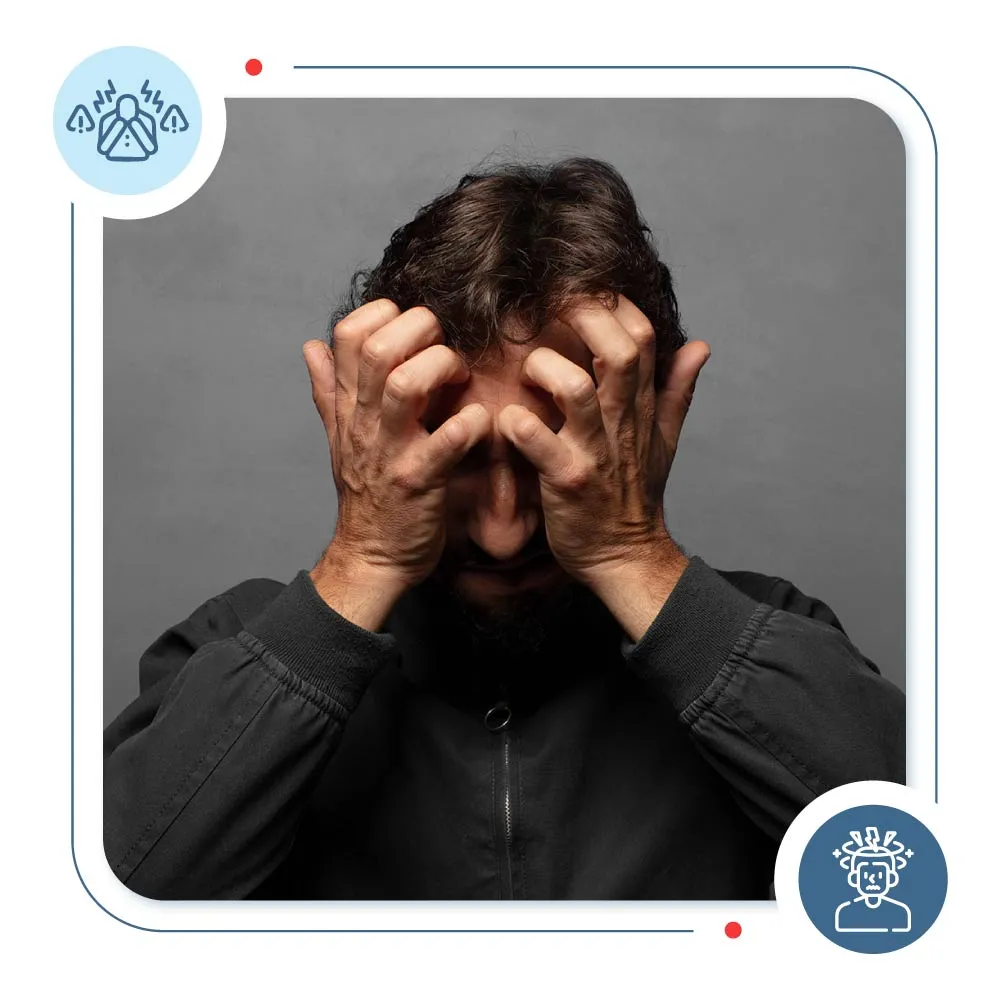
Symptoms of Anxiety
The symptoms a person faces heavily rely on the type of anxiety they have. Physical symptoms of anxiety you might be having are:
- Dry mouth
- Heart palpitations
- Muscle tension
- Nausea
- Numb feet or hands
- Restlessness
- Shortness of breath
- Either too sweaty or too cold hands
- Trouble staying asleep (insomnia) or falling asleep
Severe anxiety symptoms may include some psychological signs:
- Obsessive and uncontrollable thoughts
- Feeling panic, dread, uneasiness, and fear
- Unexpected panic attacks
- Difficulty concentrating
- Feeling irritable
Stress and anxiety treatments are individualized because the symptoms differ from person to person.

Causes of Stress and Anxiety
The causes of stress can stem from multiple factors, influenced by how an individual perceives and processes them.
- Losing a job
- Death of a loved one
- Financial burden
- Poor health
- Surrounded by a toxic environment
Other short-term daily stressors can include the pressure to complete a lengthy task quickly, preparing for a presentation, or disagreements.
The cause of anxiety is not definite. Researchers are still trying to figure out what makes you experience anxiety.
- Genetics can also be the leading cause of anxiety. Having a family history of anxiety suggests a higher chance you can have anxiety, especially if your 1st-degree lineage (sibling or parents) has anxiety issues.
- A certain brain part called the “amygdala” plays a major role in your anxiety. A few studies show that amygdalar activity increases during anxiety triggers.
- Hormones and neurotransmitters: Dopamine, gamma-aminobutyric acid (GABA), serotonin, and norepinephrine govern your brain function. You tend to experience anxiety if the levels of these chemicals change in your blood.
- The environment also affects you negatively, e.g., disputes among your parents, changes in your job or workplace, or some traumatic event
- Substance Abuse is another major cause. Stimulant drugs can alter your brain function and make you feel anxious.


Types of Anxiety Disorders
As per the DMS-5, there are multiple anxiety disorders— a standard reference guide for mental health disorder diagnoses. Major anxiety disorder types are:
It is an overwhelming feeling of apprehension and fear. You worry excessively and repeatedly about everyday chores. You might become so flooded with concerns that you cannot complete daily tasks.
Social Anxiety Disorder
Social anxiety disorder is also known as social phobia. It compels you to believe that other people are continuously judging you and, thus, makes you avoid social interactions. It’s a kind of situational anxiety disorder.
It is a severe anxiety disorder. It makes you have abrupt, frequent, and repeated episodes of panic attacks. You experience severe anxiety symptoms with a sudden bursting of extreme fear or impending doom, which gets stronger in minutes.
Selective Mutism
It is when you fail to speak in certain circumstances due to anxiety. It mostly impacts children, but also affects adults.
Specific Phobias
These phobias occur when a severe, life-disrupting fear of specific objects or circumstances impacts your life.
Agoraphobia
It provokes you to have an intense fear of being trapped or unable to escape from somewhere. You decisively avoid unfamiliar places, crowds, or enclosed spaces.
Separation Anxiety Disorder
It excessively scares you of being apart from loved ones. It upsets both children and adults.
Stress and Anxiety Treatment
While stress can be well-managed with simple lifestyle modifications and stress-releasing techniques, anxiety is a different matter. Mid-Cities Psychiatry provides all kinds of mental health services that you need.
Stress Releasing Strategies
Psychiatric Medications- Antidepressants
- Antianxiety
- Beta-blockers
- Cognitive behavioral therapy CBT
- Exposure therapy
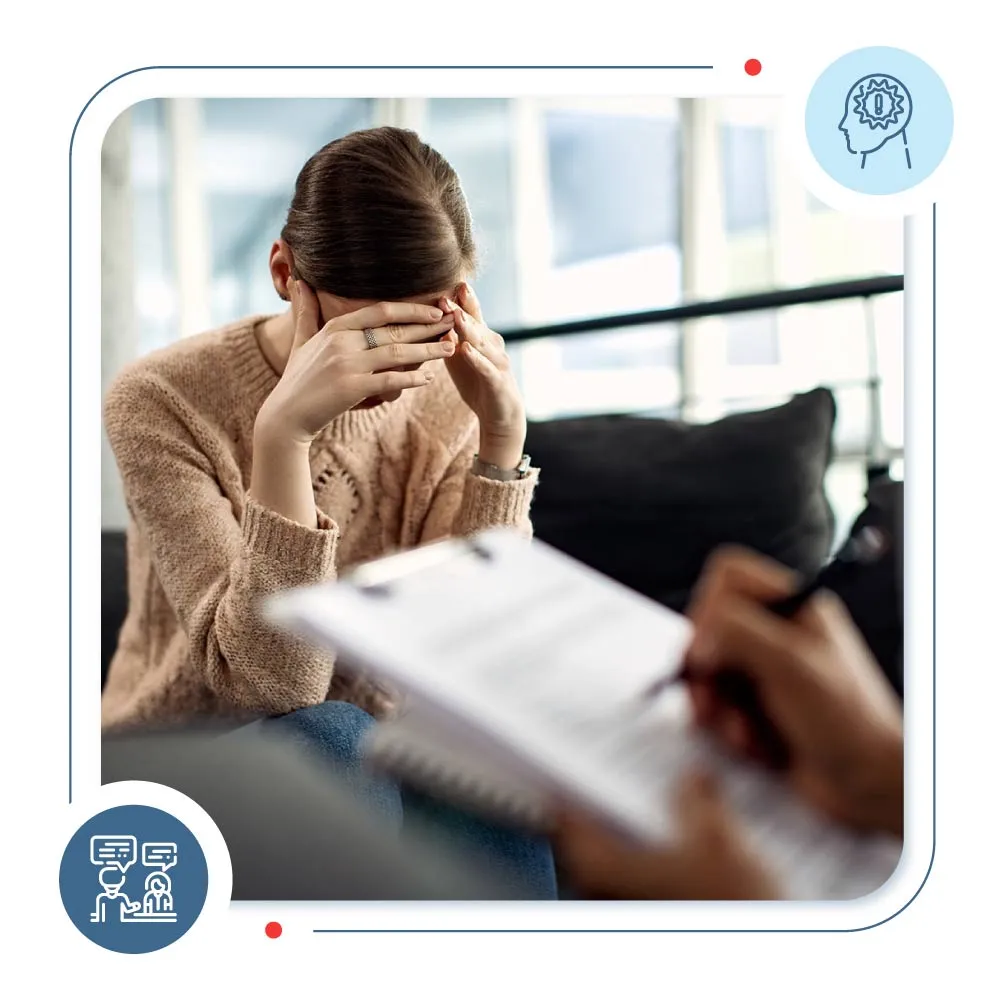

FAQs
01
How can I differentiate between anxiety and stress?
Stress is your normal response to external pressures or demands. Stress is momentary most of the time and settles as the stressors get resolved. Anxiety, though, is persistent. It constantly keeps you worried without any obvious factor.
02
Can I prevent anxiety?
You cannot always prevent anxiety disorders, but you can reduce their likelihood by adopting a balanced life. You should exercise daily, get sufficient sleep, eat healthy, and build strong relationships to be mentally sound. This helps to reduce stress and anxiety in your life.
03
What is the outlook for anxiety disorders?
If you do not opt for any treatment, your anxiety can end up in grave consequences such as major depressive disorder, substance abuse, suicidal ideations, or even death. Anxiety can also increase your risk of having a heart attack. The right treatment improves your quality of life and keeps your symptoms under control.
04
How can I calm myself when severely anxious?
If you sense severe anxiety symptoms, move yourself somewhere comfortable and safe. Take deep breaths slowly. Hold on to some grinding technique to distract your focus, e.g., the 3-2-1 technique; look at 3 green things around you, touch 2 rough things, take 1 deep breath, repeat. You can also practice writing down your anxious thoughts and challenge their validity. This helps you fight what bothers you unnecessarily.
05
What is social media anxiety?
Social media anxiety emerges from your excessive use of social media platforms. You put yourself in a race to compete with others on social networks. This pressurizes you to maintain a perfect online presence to avoid criticism from others. You ultimately end up with an unwavering sense of ‘fear of missing out’ (FOMO).
Real Stories, Real Recovery





We provide a comprehensive care provision for the most common mental issues people struggle with, such as PTSD, ADHD, OCD, anxiety, depression, sleep disorder, schizophrenia, and numerous other mental health conditions.



